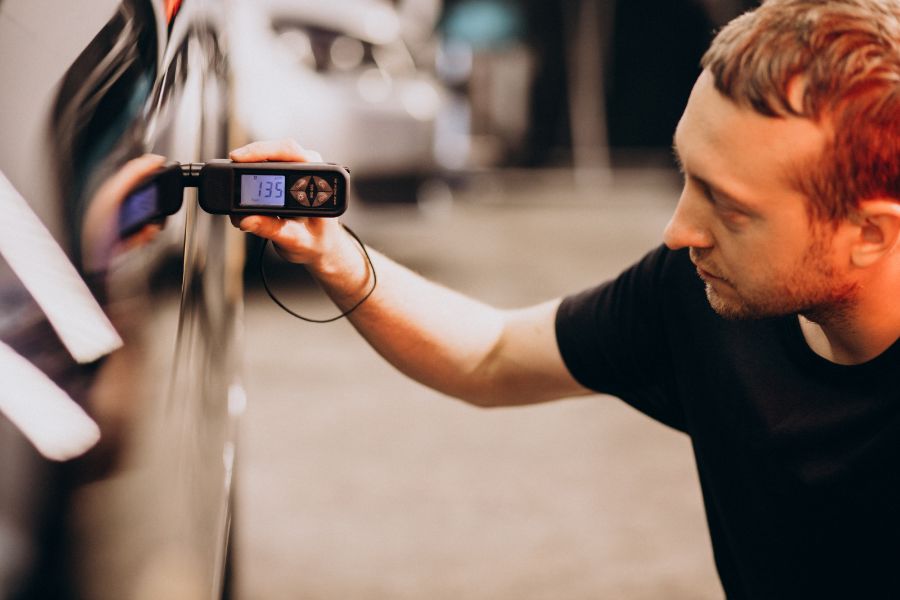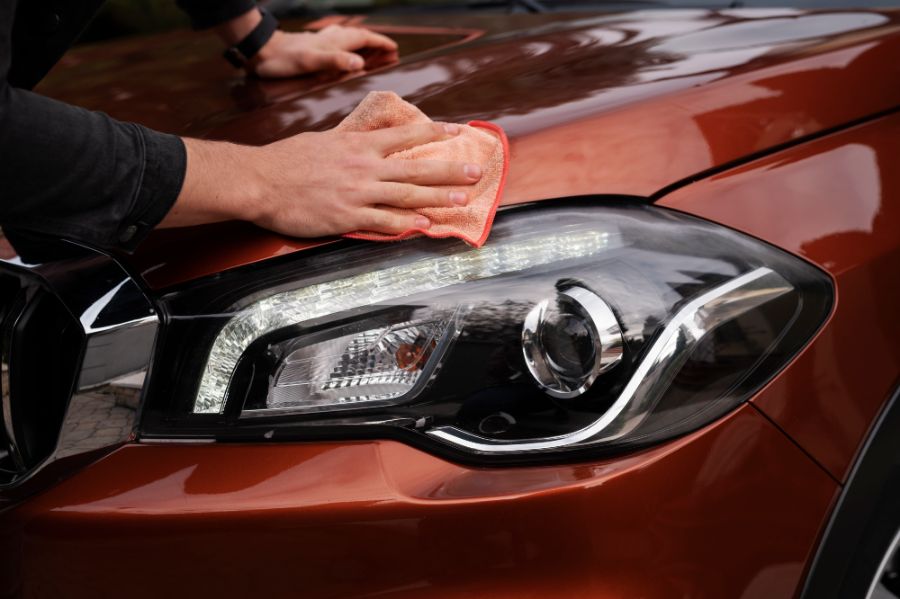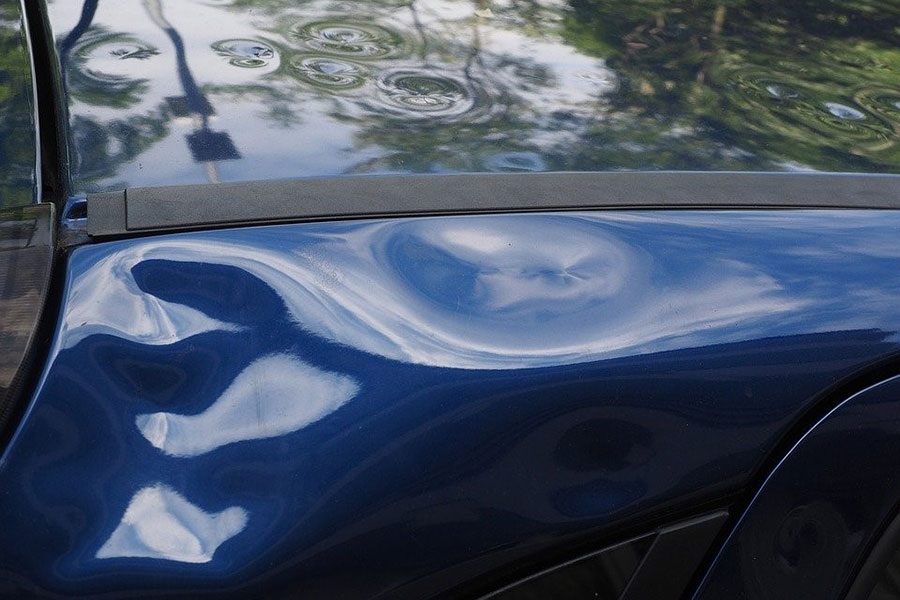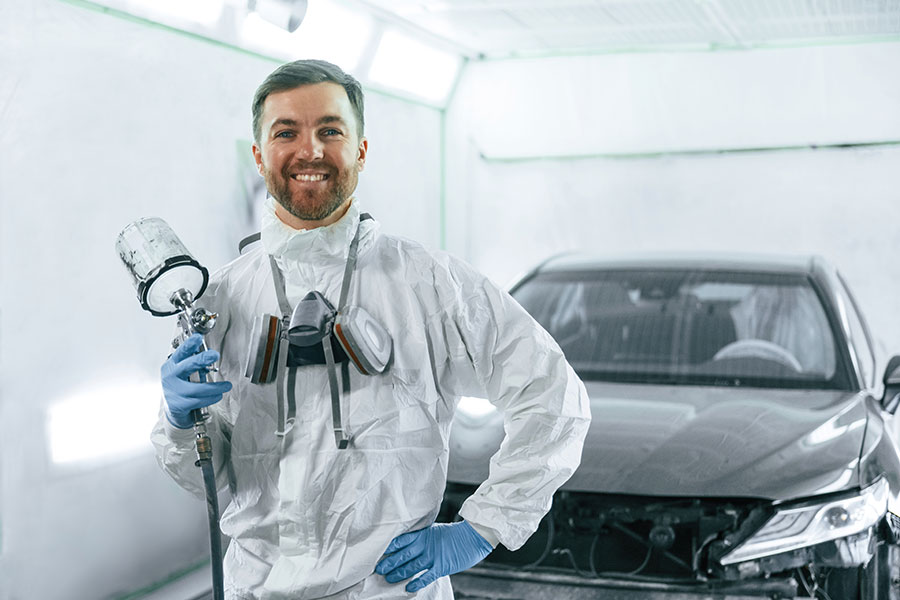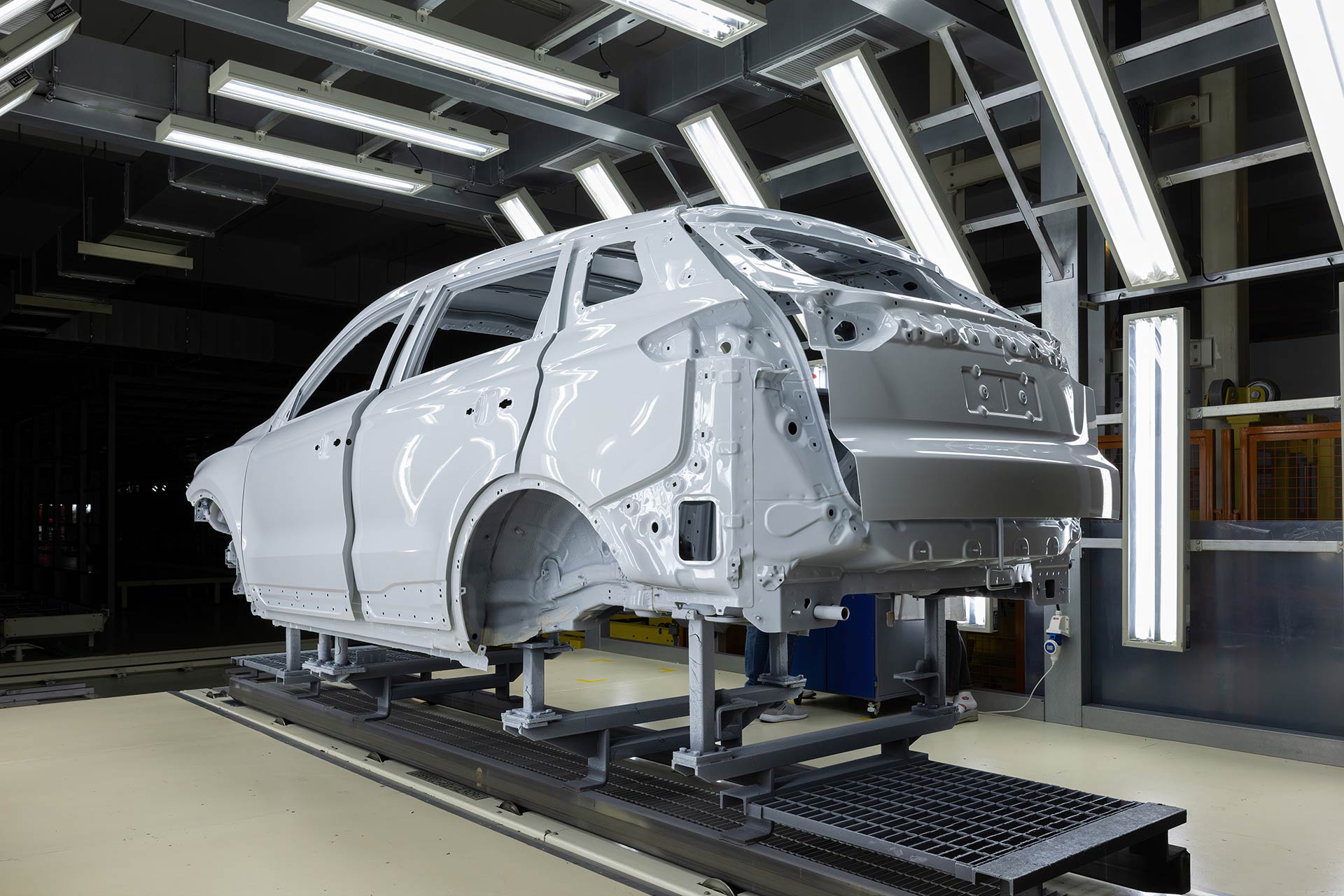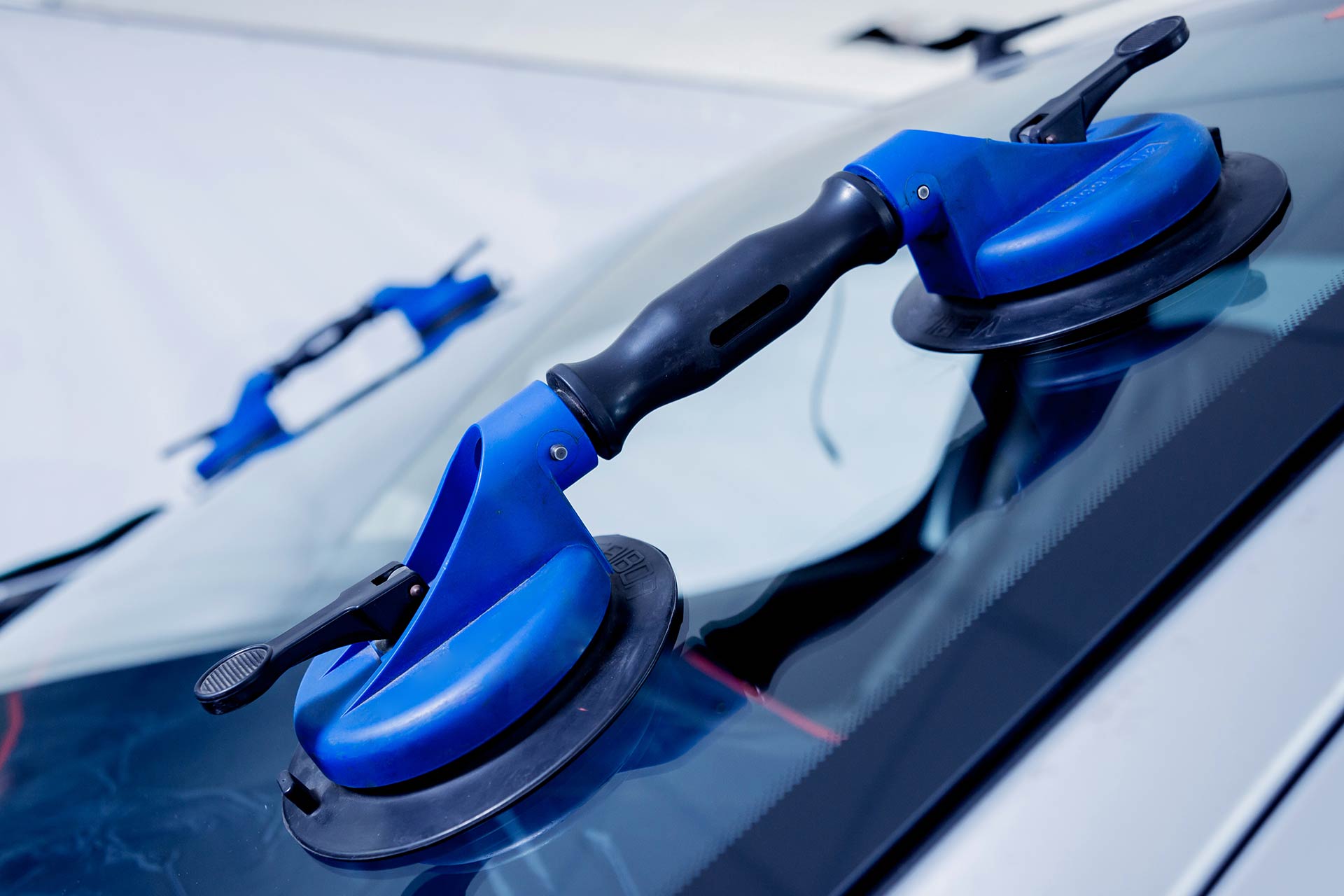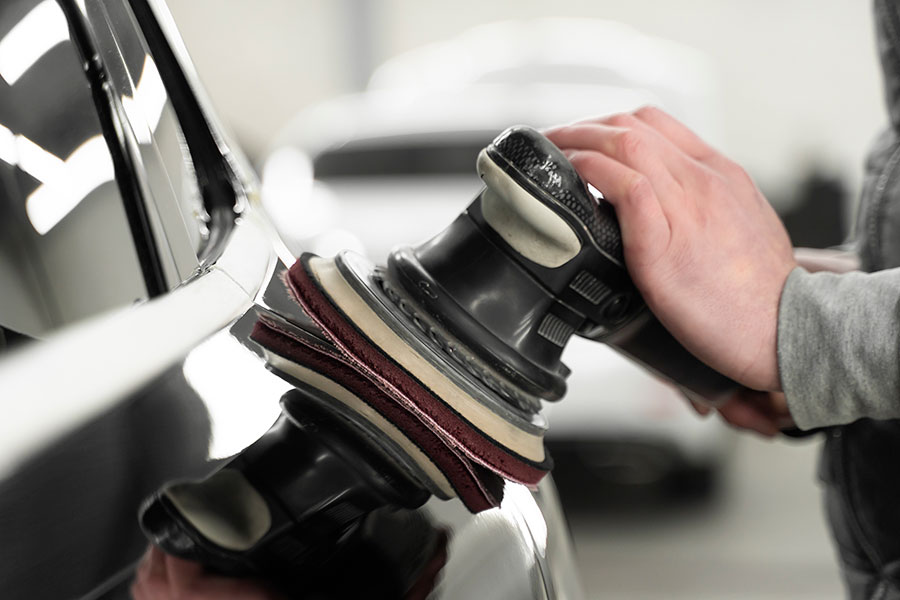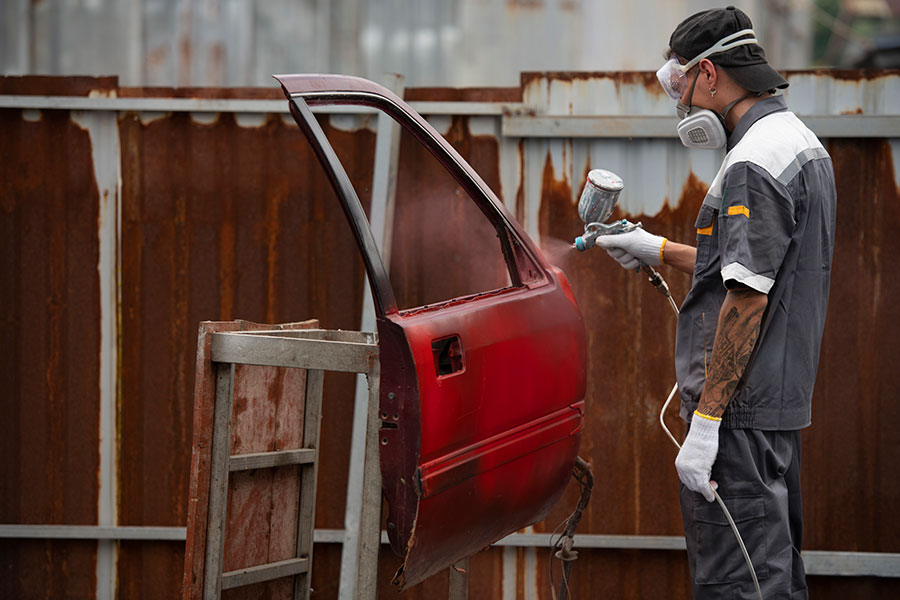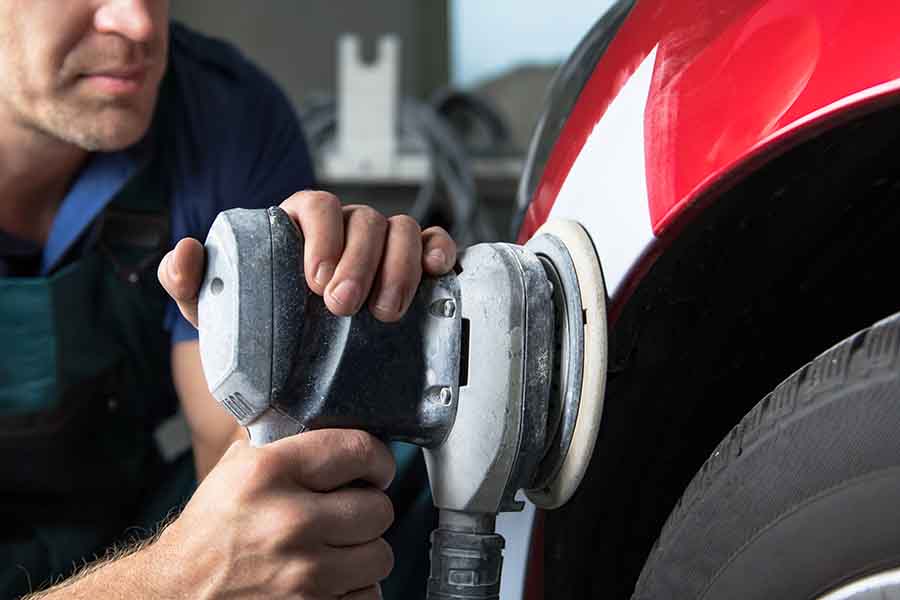Laser measuring technology has revolutionized the way mechanics and auto repair professionals approach car repairs. Gone are the days of guesswork and manual measurements that could lead to inaccuracies. Today, laser measuring for car repair ensures precise diagnostics and adjustments, making it a critical tool in any modern auto repair shop. This tech not only speeds up the repair process but also enhances the quality of work, ensuring vehicles are returned to their pre-accident condition with pinpoint accuracy. Whether it's aligning frames or assessing damage, laser measuring tools have set a new standard in automotive repair, combining efficiency with unmatched precision.
Understanding Laser Measurement
Laser Technology
Laser measurement technology uses light beams to assess distances and dimensions. In car repair, it helps in evaluating damage and alignment with high precision. Technicians rely on this method for its accuracy and efficiency.
The system emits a laser beam that hits the car's surface. It then reflects back to the detector. This process calculates the distance between the laser device and the car's surface. Accuracy is key here, as even small errors can affect repairs.
System Components
A laser measuring system includes lasers, detectors, and software. Each plays a crucial role in the measurement process.
Lasers generate the light beam for measurement. Detectors capture the reflected light to calculate distances. Software processes this data, providing detailed images and measurements of the vehicle's structure. These components work together to ensure precise assessments.
Measurement Process
Using laser measurement for car repair involves a few steps. First, technicians set up the laser system around the vehicle. They then calibrate it to ensure accuracy.
Next, they initiate the scanning process. The system measures various points on the vehicle's surface. This creates a detailed map of its structure and condition.
Technicians use this information to assess damage or misalignment. They can see exactly where repairs are needed. This makes the repair process more straightforward and accurate.
Advantages of Laser Technology
Precision and Accuracy
Laser measuring tools bring unparalleled precision to car repair. Unlike traditional tape measures or rulers, which can bend or give inaccurate readings, lasers provide exact measurements down to the millimeter. This accuracy is crucial when aligning components or assessing damage.
Technicians can trust laser measurements to match factory specifications perfectly. This ensures repairs restore the vehicle to its original condition. The precision also helps in identifying even the smallest deviations that could affect the car's performance.
Speed and Efficiency
Laser systems significantly speed up the assessment process. Traditional methods require manual measurements and often multiple checks to ensure accuracy. With lasers, a technician can quickly gather data with a single scan. This rapid data collection leads to quicker diagnostics and faster repair turnaround times.
The efficiency of laser technology means less waiting for customers. It allows repair shops to handle more vehicles in less time, increasing their capacity and profitability.
Minimal Contact
One of the most significant benefits of using laser measurement in car repair is the minimal physical contact with the vehicle. Traditional assessment methods might necessitate touching or manipulating damaged areas, risking further harm. Lasers, however, only need a line of sight to measure distances accurately.
This non-invasive approach is especially valuable for delicate or high-value vehicles. It ensures that assessing damage does not add to it. Repair shops can offer their services to owners of luxury cars with confidence, knowing they have the means to evaluate without causing additional issues.
Comparing Measuring Systems
Accuracy Levels
Laser measuring systems shine in their precision and reliability. Unlike mechanical tools, which rely on physical contact and can suffer from wear and tear, lasers offer non-contact measurement. This means they can maintain their accuracy over time without the same level of degradation. Electronic measuring tools also provide accurate readings but can be sensitive to environmental factors like temperature and humidity, which do not affect laser systems as much.
Mechanical tools may struggle with complex shapes or hard-to-reach areas. In contrast, laser systems can easily navigate these challenges, providing detailed measurements in seconds. This accuracy is crucial in car repair, where even small discrepancies can lead to bigger problems down the road.
Ease of Use
Learning to use a laser measuring system is straightforward, especially when compared to traditional tools. Most modern laser systems come with user-friendly interfaces and guides that help technicians master their use quickly. Mechanical and electronic tools often require more hands-on experience to achieve the same level of proficiency.
The ease of use of laser systems reduces the time needed for training. It allows technicians to focus more on the repair work itself rather than struggling with measurement tools. This efficiency is a significant advantage in fast-paced repair shops where time is money.
Cost Implications
Investing in laser technology for car repair might seem costly at first glance. However, considering the long-term benefits, it becomes clear that laser systems can be more cost-effective. The initial purchase price of a laser measuring system is higher than that of mechanical or electronic tools. Yet, its durability, reduced need for recalibration, and minimal maintenance requirements offset this.
Furthermore, the accuracy and efficiency provided by laser systems can lead to savings by reducing errors and rework. In contrast, the lower upfront costs of mechanical and electronic tools might not translate into savings if inaccuracies lead to costly mistakes or customer dissatisfaction.
Evolution of Measurement in Car Repair
Manual Gauges
Car repair has come a long way from its early days. Initially, manual gauges were the primary tools for measuring everything from tire pressure to engine alignment. These tools required skilled hands and keen eyes. They were prone to human error, though. The precision was often as good as the technician's experience.
Technicians would use rulers, calipers, and other handheld devices to get measurements. This process was slow. It sometimes led to inaccuracies that could affect the car's performance.
Technological Advancements
The leap from manual to digital brought significant changes. Digital calipers and micrometers provided more accurate readings with less effort. Then came the laser measuring systems. These systems marked a turning point in car repair technology.
Laser measurement tools offered unprecedented accuracy. They could measure distances and alignments down to fractions of a millimeter. This precision was not possible with manual tools. The introduction of these systems in the 1990s and their evolution has been a game-changer.
Laser Systems Accessibility
Initially, laser systems were expensive and bulky, limiting their use to high-end repair shops or manufacturers. Over time, advancements in technology have made these systems more affordable and compact. Today, many independent repair shops can access this advanced technology.
This accessibility has leveled the playing field. Small shops can now offer services that match the quality of larger dealerships or manufacturers.
Impact on Car Repair
The impact of these advancements cannot be overstated. Laser measuring systems have improved both the quality and efficiency of car repairs. They allow for quicker diagnoses and more precise repairs. This means cars spend less time in the shop and more time on the road.
Moreover, the accuracy of laser systems has improved customer satisfaction. There is less guesswork involved in repairs. Customers can trust that their vehicle is being serviced correctly the first time.
Why Precision Matters in Vehicle Repair
Safety Assurance
Precise measurements play a critical role in ensuring a vehicle's safety post-repair. When technicians use laser measuring tools, they can achieve exact alignment and balance of the car's components. This precision helps in maintaining the vehicle's stability on the road.
Accurate measurements ensure that the wheels are perfectly aligned. Misalignment, even by a small margin, can lead to uneven tire wear. This not only shortens the lifespan of the tires but also compromises the vehicle's handling and safety. Therefore, precision in measurements is not just about performance; it's about keeping drivers and passengers safe.
Performance Maintenance
To maintain a vehicle's performance, every part must fit and function as intended. Laser measuring tools provide the accuracy needed for this precision. They help identify even the slightest deviations from the original specifications.
Incorrect measurements can result in parts not fitting correctly. This can cause additional stress on the vehicle's engine and other systems, leading to decreased performance and increased fuel consumption. With precise measurements, every repair and replacement is ensured to contribute positively to the vehicle's overall performance.
Resale Value
The accuracy of repairs also significantly impacts a vehicle's resale value. Precise measurements ensure that the car remains as close to its original condition as possible. This is crucial for maintaining its aesthetic appeal and structural integrity.
Inaccurate repairs can lead to visible gaps or misalignments in body panels. Such issues not only detract from the vehicle's appearance but also signal potential underlying problems to prospective buyers. Consequently, precision in car repair is essential for preserving or enhancing a vehicle's market value.
Aesthetic Appeal
Beyond safety and performance, the visual aspect of a vehicle is important to many owners. Accurate laser measurements ensure that repairs are not noticeable, preserving the car's original look. This is especially vital after accidents where body work is required.
Without precise measurements, repaired areas might not match perfectly with the rest of the vehicle. This can result in uneven gaps or misaligned panels, affecting the car’s overall appearance. Thus, precision plays a pivotal role in maintaining both the aesthetic appeal and structural integrity of the vehicle.
Innovations in Modern Repair Techniques
New Software
The auto repair industry has seen a significant transformation with the introduction of new software. This software works hand-in-hand with laser measuring systems. It provides detailed diagnostics and precise measurements. Technicians can now identify issues with incredible accuracy. Before, this level of detail was hard to achieve.
These programs also offer step-by-step guidance. They make complex repairs more manageable. They ensure that repairs meet the high standards necessary for vehicle safety and performance.
AI Integration
Artificial intelligence (AI) and machine learning (ML) have revolutionized how measurements are taken and analyzed. These technologies enhance the precision of laser measuring tools. They allow for real-time adjustments during the repair process.
AI algorithms compare the vehicle's current state against a vast database of factory specifications. This ensures that repairs are not just accurate but also consistent with manufacturer standards. The integration of AI reduces human error, making car repairs more reliable than ever.
Mobile Devices
The advent of mobile laser measuring devices has brought flexibility to the repair process. Technicians can now perform accurate assessments directly on the shop floor or even at the client's location. This portability speeds up the diagnostic phase. It allows for immediate adjustments.
Mobile devices have made it easier to share results with clients, improving transparency in car repairs. Customers can see what issues exist and understand why certain repairs are necessary. This builds trust between the client and the service provider.
Beyond Traditional Measuring Tools
Limitations Faced
Traditional measuring tools have served the auto repair industry for decades. However, they struggle with complex repair jobs. Tape measures and rulers lack precision in assessing damage accurately. They can't always reach or measure intricate parts of a vehicle.
Mechanics often find it challenging to use these tools on modern cars. These vehicles come with sophisticated designs that traditional tools can't handle well. This mismatch leads to longer repair times and increased chances of inaccuracies.
Laser System Adaptability
Laser measuring systems stand out for their versatility. They adapt seamlessly to different types of vehicles and damage scenarios. Whether it's a compact car or a large SUV, laser technology provides precise measurements.
These systems can assess damage in real-time, offering detailed insights into the extent of the repairs needed. This adaptability ensures mechanics can work efficiently, regardless of the vehicle model or the complexity of the damage.
Environmental Benefits
Laser technology also shines in its environmental benefits. It produces less waste compared to traditional methods. There's no need for disposable measuring tapes or other single-use tools that contribute to landfill waste.
Moreover, laser systems consume lower energy. They are designed to operate efficiently, reducing the carbon footprint of repair shops. This makes laser measuring not only a smart choice for accuracy but also for sustainability.
The Future of Car Repair with Laser Technology
Standard Adoption
Moving beyond traditional tools, the future shines bright for car repair with laser technology taking the lead. Shops across the globe are starting to see the unmatched precision and speed offered by laser measuring systems as not just an option, but a necessity.
Predictions lean towards a future where these systems become standard equipment in every repair shop. They offer a level of detail and accuracy that manual methods can't match, making them indispensable. This shift not only promises improved repair quality but also efficiency in workflow, reducing the time cars spend in the shop.
Research Advances
The push for perfection never stops in the realm of laser technology. Researchers are tirelessly working to enhance measurement accuracy while also striving to make these systems more affordable.
Their efforts focus on developing new algorithms and hardware that can further refine the precision of laser measurements. These advancements aim to lower the cost barrier, making laser technology accessible to more repair shops. As costs decrease, adoption rates are expected to soar, marking a significant leap forward in car repair standards.
Future Applications
Laser technology's potential stretches far beyond simple measurements. Its future applications in car repair hint at a revolution in how services are provided.
- Automated Repair Processes: Imagine robots equipped with laser tools performing repairs with minimal human intervention. This could drastically reduce labor costs and human error, leading to faster and more reliable repairs.
- Enhanced Customer Service: With laser technology, diagnostics can be quicker and more accurate. This means customers can get detailed reports about their vehicle's condition in no time. Such transparency can significantly boost trust and satisfaction.
These innovations could redefine convenience and efficiency in car repair, offering services that were once deemed futuristic.
Final Remarks
Laser measuring tech has revolutionized car repair, making precision a top priority. You've seen how it compares to traditional methods, its advantages, and the innovations shaping the future of vehicle maintenance. With laser technology, accuracy in diagnosing and fixing your car is no longer a guesswork game. It's about getting it right the first time. This leap in measurement tech means your car gets back on the road faster and safer, saving you both time and money.
Embrace the change. Explore how laser measuring can enhance your car's repair process. It's not just about keeping up with advancements; it's about ensuring the best care for your vehicle. Dive into the world of laser tech and see how it transforms your auto repair experience. Let's drive into the future of car repair together.
Frequently Asked Questions
How does laser measuring improve accuracy in car repair?
Laser measuring systems offer unparalleled precision in vehicle repair, ensuring components are aligned and fitted correctly to the manufacturer's specifications, enhancing both safety and performance.
What are the advantages of using laser technology in auto repairs?
Laser technology provides faster, more reliable measurements with minimal human error, improving repair quality and reducing turnaround times for customers.
How do laser measuring systems compare to traditional tools in car repair?
Laser systems are significantly more accurate and efficient than traditional measuring tools, allowing for real-time data analysis and adjustments that save time and ensure better outcomes.
Can laser measurement technology be used on all types of vehicles?
Yes, laser measuring systems are versatile and can be adapted for use on a wide range of vehicles, from passenger cars to heavy trucks, ensuring precise repairs across the board.
Why is precision important in vehicle repair?
Precision is crucial to restore a vehicle's structural integrity and functionality, ensuring it performs safely under all conditions and extends the lifespan of the car.
What innovations has laser technology brought to modern car repair techniques?
Laser technology has introduced non-invasive, highly accurate measurement capabilities, enabling technicians to diagnose and correct issues with unprecedented precision and speed.
How will laser technology shape the future of car repair?
Laser technology is set to revolutionize car repair by introducing more automated, accurate, and efficient processes, ultimately improving service quality and customer satisfaction while reducing costs.
